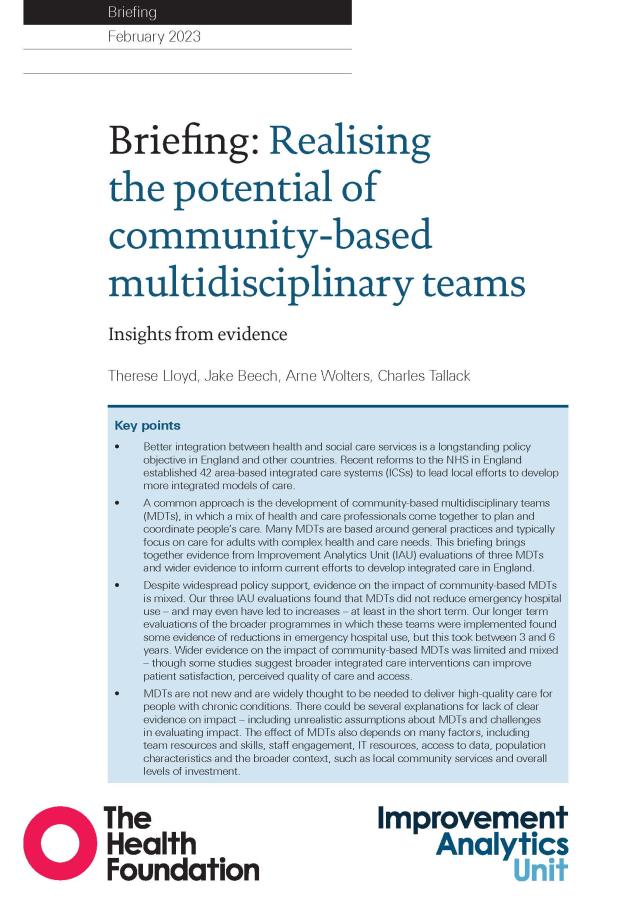Realising the potential of community-based multidisciplinary teams Insights from evidence
February 2023

Key points
• Better integration between health and social care services is a longstanding policy objective in England and other countries. A common approach is the development of community-based multidisciplinary teams (MDTs), in which a mix of health and care professionals come together to plan and coordinate people’s care.
• Despite widespread policy support, evidence on the impact of community-based MDTs is limited and mixed. This briefing summarises evidence from Improvement Analytics Unit (IAU) evaluations of three MDTs and wider evidence to inform current efforts to develop integrated care in England.
• To realise the potential of MDTs, this briefing makes four recommendations:
- Develop a clear, evidence-informed ‘logic model’ (or ‘theory of change’) for how service changes are expected to lead to improvements in care.
- Collect data on key aspects of the logic model as part of the implementation of MDTs.
- Monitor inputs, activities and short- and medium-term outputs.
- Undertake robust evaluation to understand what works, for whom and in which contexts. Robust evaluation requires careful design, reliable data and resources – and input and support from both local and national decision makers.
This briefing summarises evidence from IAU evaluations of three MDTs and wider evidence to inform current efforts to develop integrated care in England. It reflects on what this evidence means for local leaders looking to implement MDTs, as well as for national leaders seeking to support these models of integrated care.
While there is guidance on MDTs and evidence on enablers and barriers to effective team working, there is no single blueprint for MDTs that would guarantee better health outcomes, reduced emergency hospital use or improved patient experience. The effect of MDTs depends on many factors, including team resources and skills, staff engagement, IT resources, access to data, population characteristics, and broader context such as local community services and overall levels of investment.
Therefore, to realise the benefit these initiatives can have, implementation needs to be carefully planned and supported by ongoing monitoring and evaluation. Applying learning health system approaches and providing rapid feedback on whether MDTs are being implemented as planned and achieving the expected results will allow for ongoing learning and improvement.
Cite this publication
Learn more about this analysis
Further reading
Work with us
We look for talented and passionate individuals as everyone at the Health Foundation has an important role to play.
View current vacanciesThe Q community
Q is an initiative connecting people with improvement expertise across the UK.
Find out more


